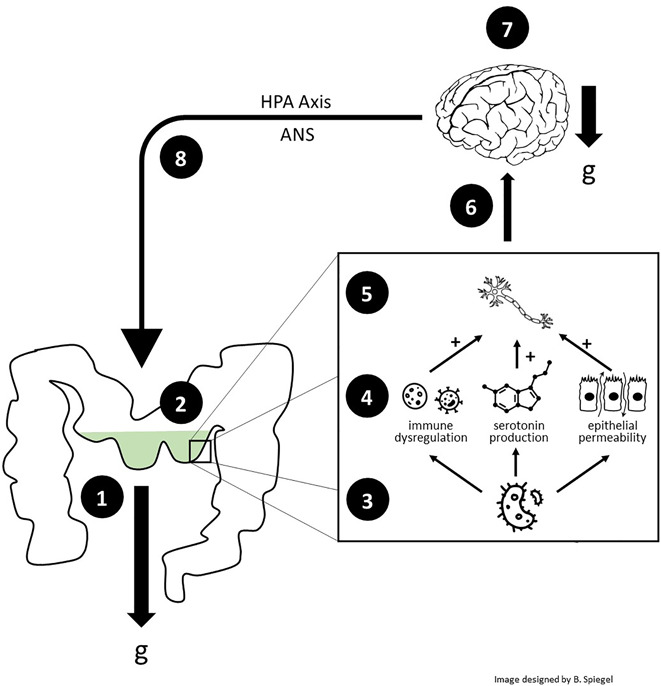Figure 8.

The gastrointestinal (GI) tract as serotonin-mediated home base for gravity management. (i) In those who are mechanically susceptible, gravity strain may cause compression, kinking, deformation, or pressurization of the intestines; (ii) dysmotility and stasis occur; (iii) microbiome alterations result; (iv) dysbiosis produces excess luminal serotonin (among other metabolites) and contributes to epithelial permeability and local immune dysregulation; (v) visceral afferent nerves become sensitized; (vi) nociceptive signals are transmitted to the brain with higher frequency and intensity; (v) alerted to the gravitational misalignment, the brain attempts to compensate by modifying physiological, psychological, and behavioral states in an effort to reduce g-force strain; (viii) disrupted sleep and stress from physical and psychosocial burden alter HPA axis and ANS function in a gravity-dependent manner (see Supplementary Digital Content, Appendix, http://links.lww.com/AJG/C771 for this mechanism), thus further dysregulating GI physiology and microbiology in a vicious cycle. A hypothesized alternative sequence of reverse causation begins with the brain rather than the gut, where primary abnormalities in structural and fluidic g-force support of the brain cause sleep disruptions, HPA axis and ANS dysregulation, and altered GI physiology, culminating in visceral sensitization and IBS symptoms. See the Supplementary Digital Content (Appendix, http://links.lww.com/AJG/C771) for this alternative sequence. ANS, autonomic nervous system; IBS, irritable bowel syndrome; GI, gastrointestinal; HPA, hypothalamic-pituitary-adrenal.
